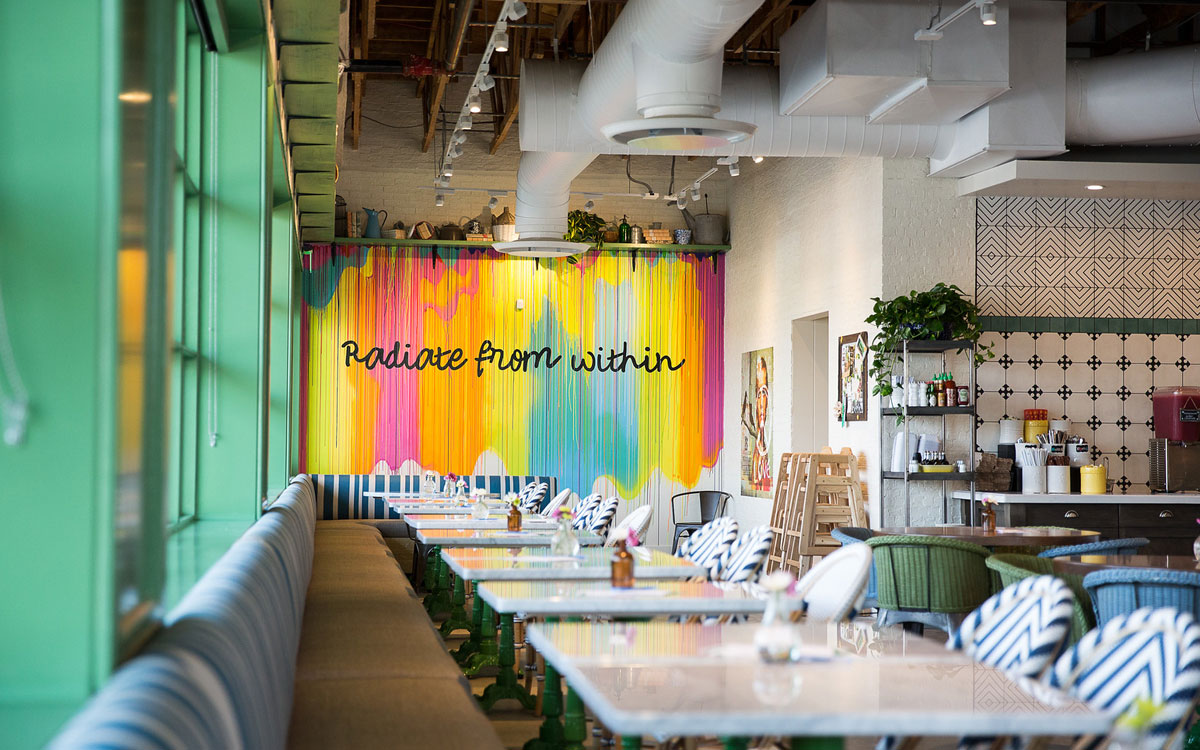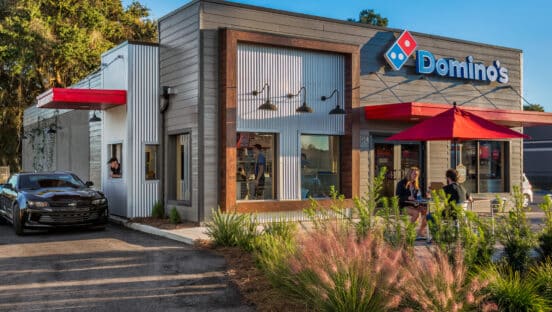Sam Fox means business. Having just opened Fox Restaurant Concepts’ 100th restaurant, the founder knows a thing or two about what customers crave and how to get those cravings to them in a succinct, enjoyable fashion. He is a third-generation restaurateur who dropped out of the University of Arizona, where he had been studying real estate finance, to open his first restaurant, Gilligan’s Bar and Grill.
Fox’s first dive into fast casual was in 1999 with Sauce Pizza & Wine, which he sold five years ago. “We were really early adopters of fast casual,” Fox says.
After feeling out the health market with the successful casual concept True Food Kitchen, Fox decided to take another swing at limited service, this time with Flower Child. “We were really educating ourselves about healthy eating and how people want to eat,” Fox says of the development of True Food. “So we applied all the knowledge to open up Flower Child.” The concept is his answer to customers’ desire for healthy, high-quality food that can be tailored to meet dietary restrictions like dairy-free, vegan, or gluten-free.
- Founder: Sam Fox
- Headquarters: Phoenix
- Year started: 2014
- 2019 projected sales: $71,840,000
- Total units: 19
- Franchised units: 0
- website: iamaflowerchild.com
“We can attract so many different guests based on dietary needs or wanting to know where the proteins or the vegetables are coming from,” Fox says. The brand also wins customers who are just there to enjoy a healthy meal without thinking about it. “It appeals to a lot of different people,” he says.
Full of color, the decor takes inspiration from the springtime, and the menu encourages folks to eat their veggies with layer upon layer of health-packed ingredients in one dish. Plates, bowls, and salads are vegan or vegetarian at the base, with add-on proteins like sustainable salmon, all-natural chicken, grass-fed steak, or organic, non-GMO tofu for a bit extra.
Customer favorites include the Mother Earth bowl, which has ancient grains combined with sweet potato, portobello mushroom, avocado, cucumber, broccoli, pesto, charred onions, leafy greens, red pepper miso vinaigrette, and hemp seeds. The Skinny Cobb salad combines romaine, arugula, and red cabbage with avocado, tomato, cucumber, crunchy corn, pickled onion, and smoked almond, tossed in a gorgonzola vinaigrette. Fox’s personal favorite is the seasonal Vegan Ramen, which mixes spicy tofu, pickled cucumber, roasted corn, bok choy, bean sprout, and miso sesame broth.
Each dish features food with health functions, like the protein-heavy hemp seeds, sea vegetables, whole grains, dried cranberries, and sustainable salmon. Many of these functional ingredients are used as garnishes, like the wakame seaweed on the Vegan Ramen or the cashew sauce in the Thai Cashew Quinoa bowl. “Our guests want to be healthy and eat foods to help them prevent illness,” says Brad Borchardt, director of culinary standards. He sees other, more mainstream concepts taking cues from Flower Child to add more functional foods to menus.

“People are obviously a lot more conscious of the things they are eating,” Fox says. To that end, the concept offers elevated proteins and a plant-forward, chef-constructed menu in a space that feels more like casual dining than fast casual. Flower Child’s open kitchen drives this home, as guests watch their dishes throughout the prep process.
Locations are all about 3,500 square feet and modeled after an East Coast potting shed, Fox says. There are lots of floral touches. The large, open dining room allows for great energy, and there is a separate take-out area in each store to allow for ease of third-party delivery and take-out business. Plus, locations in warmer regions like the West Coast and South have expansive patios.
The first Flower Child came to life in Phoenix in 2014, with a second following in Scottsdale, Arizona, and the first out-of-state location in Santa Monica, California—both in 2015. The brand now has several units in California, plus stores in Texas, Georgia, Colorado, and the D.C. area. Plans are underway to plant flags in North Carolina and Tennessee.
Two years ago, The Cheesecake Factory pitched in an equity investment to help Flower Child grow. As of press time, 15 leases have been signed across the country. “Our goal is to open somewhere between six and eight units a year,” Fox says.
The guest profile for Flower Child is, in general, health conscious, affluent, and educated, Fox notes. The brand seeks locations with great parking and potential for strong business at lunch and dinner, seven days a week. Additionally, the team likes to be near outdoor activities, gyms, and lifestyle stores like Lululemon that match Flower Child’s philosophy.
Geography, however, continues to be the brand’s—and the restaurant group’s—biggest challenge, Fox says. As a West Coast operation growing eastward, identifying the unique trends in each individual market can prove tricky. To overcome this hurdle, Flower Child has set up an ambassador team that builds a local presence in target areas, participating in job fairs to get the word out and then training people back in Arizona, where it all started.
“We’re investing in people so they understand the culture and the vibe of what we’re trying to accomplish,” Fox says.






